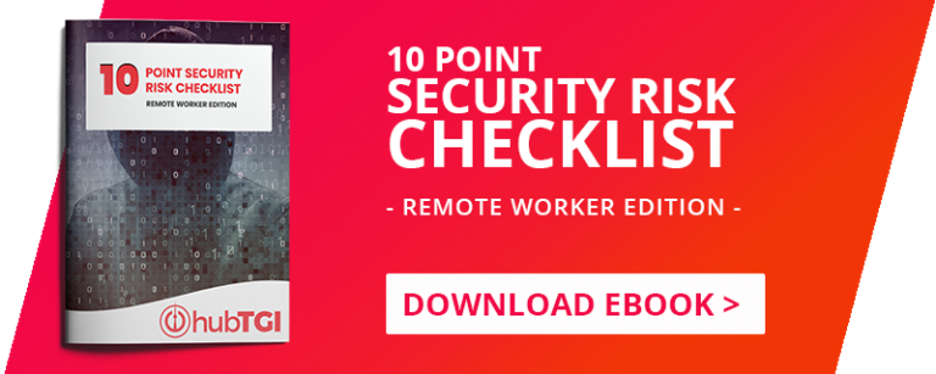More and more businesses are operating online, enabling hackers to find innovative ways to breach security walls and access sensitive data. While many forms of cyber attacks exist, small and medium-sized businesses (SMBs) are seen as the most vulnerable by hackers, and are at risk of a few common attack methods.
Here are five most common ways hackers attack and how to strengthen your defenses for your business. Stay tuned for a discussion examining how a Managed Service Provider (MSP) can serve as a strong cybersecurity ally and provide proactive defenses to keep your business safe.
Five Common Cybersecurity Attacks
1. Social Engineering
Social engineering attacks leverage human psychology rather than technical hacking skills. Instead of using brute force, hackers manipulate individuals into giving up confidential information. This often involves researching personal details on social media or publicly available databases. For example, an attacker might impersonate a colleague or vendor by persuading an employee to share login details, claiming there’s an urgent issue. Hackers can also attack using phishing techniques under the umbrella of social engineering, where they direct users to enter credentials into fake login portals.
Defend Your Business Against Social Engineering
To defend your business against social engineering, train your team to recognize these manipulative tactics. Before posting to social media, consider how sensitive the information is that you might reveal. Similarly, employees should verify login credential requests independently before sharing that confidential information.
2. Weak Passwords
Almost 80% of cybercrime is due to weak passwords and over 50% of employees have the same password for all of their logins. Weak passwords are a major weak link in a businesses cybersecurity environment and the risk is huge. If a hacker compromises one account, they can potentially gain access to others using the same credentials. Within minutes, your entire network could be in the hands of a hacker.
Defend Your Business Against Weak Passwords
The first line of defense against weak passwords is educating your employees about password security. Strong passwords are complex, incorporating numbers, symbols, and a mix of uppercase and lowercase letters, and they should be unique across all accounts. Implement a policy for employees to change passwords every 90 days, and consider using password management software to securely store and organize complex passwords. Multi-factor authentication (MFA) is a great feature that adds another layer of security by requiring users to verify their identity through a secondary device, further protecting against unauthorized access.
 3. Malware Attacks
3. Malware Attacks
Malware attacks are on the rise. As an umbrella term for software designed to cause harm to computers and networks, Malware can come in many forms and spread like wildfire. Malicious software like viruses, worms, trojans, and spyware are the most common types, typically spreading through infected websites, email attachments, USB drives, and even seemingly legitimate applications. Once it’s inside a system, malware can damage files, steal confidential information, or grant hackers unauthorized access.
Defend Your Business Against Malware
To defend your business against hackers attacking with malware, install and regularly update antivirus software that can detect and block malware. As hackers typically exploit outdated software vulnerabilities, ensure your current operating systems and applications are patched and updated. Also educate your employees on safe online behavior such as avoiding suspicious websites and downloading unverified software, to minimize the chances of malware infections.
4. Phishing Emails
The most common way hackers attack is through phishing, where hackers pose as reputable users to trick individuals into sharing sensitive information or installing malware. Phishing emails often mimic real-life communication and may use convincing logos, addresses, and language to appear authentic. They could also include links to fake websites designed to steal credentials or attachments that install malware once opened. Even vigilant users can fall victim to strategic phishing schemes.
 Defend Your Business Against Phishing
Defend Your Business Against Phishing
The best defense against phishing is by using email filtering tools that can detect and flag phishing attempts before they reach a user’s inbox. It is also important to train employees to recognize the signs of phishing including unexpected attachments, urgent requests for information, and grammatical errors in email content. Lastly, keeping all systems and applications up-to-date with the latest patches is essential to address any vulnerabilities that could be exploited.
5. Ransomware
Ransomware is probably the most devastating and costly type of malware to attack small and medium sized businesses. A ransomware attack encrypts files and locks users out of their systems until a ransom is paid. Even if the ransom is paid, there’s no guarantee that the hackers will restore access. Ransomware attacks have escalated in recent years, targeting businesses of all sizes. Especially for SMBs, these attacks can lead to financial losses, data loss, and operational downtime that make recovery difficult and costly.
Defend Your Business Against Ransomware
Protecting against ransomware involves a multifaceted approach. First, ensure all data is regularly backed up to a secure location that allows your business to recover files without paying the ransom. Also implement strong endpoint protection to detect and block ransomware before it spreads and causes irreversible damage. Most importantly, employees should be cautious about downloading attachments or clicking links in unwarranted emails, as these are common entry points for ransomware.
Each of these attacks target SMBs vulnerabilities in technology or human behavior, making comprehensive cyber protection essential. By focusing on employee education, implementing strong passwords, regularly updating software, and practicing safe online habits, your business can strengthen its defenses. For an additional layer of security, you can partner with a Managed Service Provider (MSP) to oversee your security environment and provide expert support in the event of a cyberattack.
Next, we’ll examine the role of an MSP in a businesses cybersecurity strategy and uncover the benefits of having these experts by your side.
The Role of a Managed Service Provider (MSP) in Cybersecurity
If you want to stay ahead of cybersecurity threats before they strike, then partnering with a Managed Service Provider (MSP) is a strategic and proactive choice. An MSP provides a range of managed cybersecurity services, including network monitoring, threat detection, firewall management, and vulnerability assessments. They stay up to date with the latest security trends and threats, ensuring that your business remains protected against changing threats. MSPs also offer incident response services, meaning they can quickly respond to and mitigate damage in the event of an attack.
Cybersecurity training for employees is crucial, and MSPs can help your staff stay aware of common threats and cybersecurity best practices. By following this approach, your business will be fully equipped to protect important assets when an attack strikes, allowing you to focus on your business growth.
Next Steps
Now that cyber attacks are more common than ever, businesses should prioritize implementing comprehensive strategies that safeguard their data from these threats. Especially for SMBs, creating strict password policies, integrating anti-virus software, and investing in employee training can reduce the damage caused by threats like social engineering, weak passwords, malware, phishing, and ransomware.
Working with an MSP can further level up your security posture by providing continuous monitoring, threat response, and cybersecurity expertise. Prioritizing cybersecurity is not just a defensive measure, it’s a proactive strategy for business resilience and growth. Don’t wait for a hacker to take your data for ransom. Protect your business now with a cybersecurity strategy that covers all your bases.
About hubTGI
hubTGI is a Canadian-owned Managed Services provider that offers Print Services, Workflow Solutions, Managed IT, Cybersecurity Solutions, Cloud Services and VoIP to help their customers control costs, secure their data and make their people more productive.
For the latest industry trends and technology insights visit hubTGI’s Resources page.







